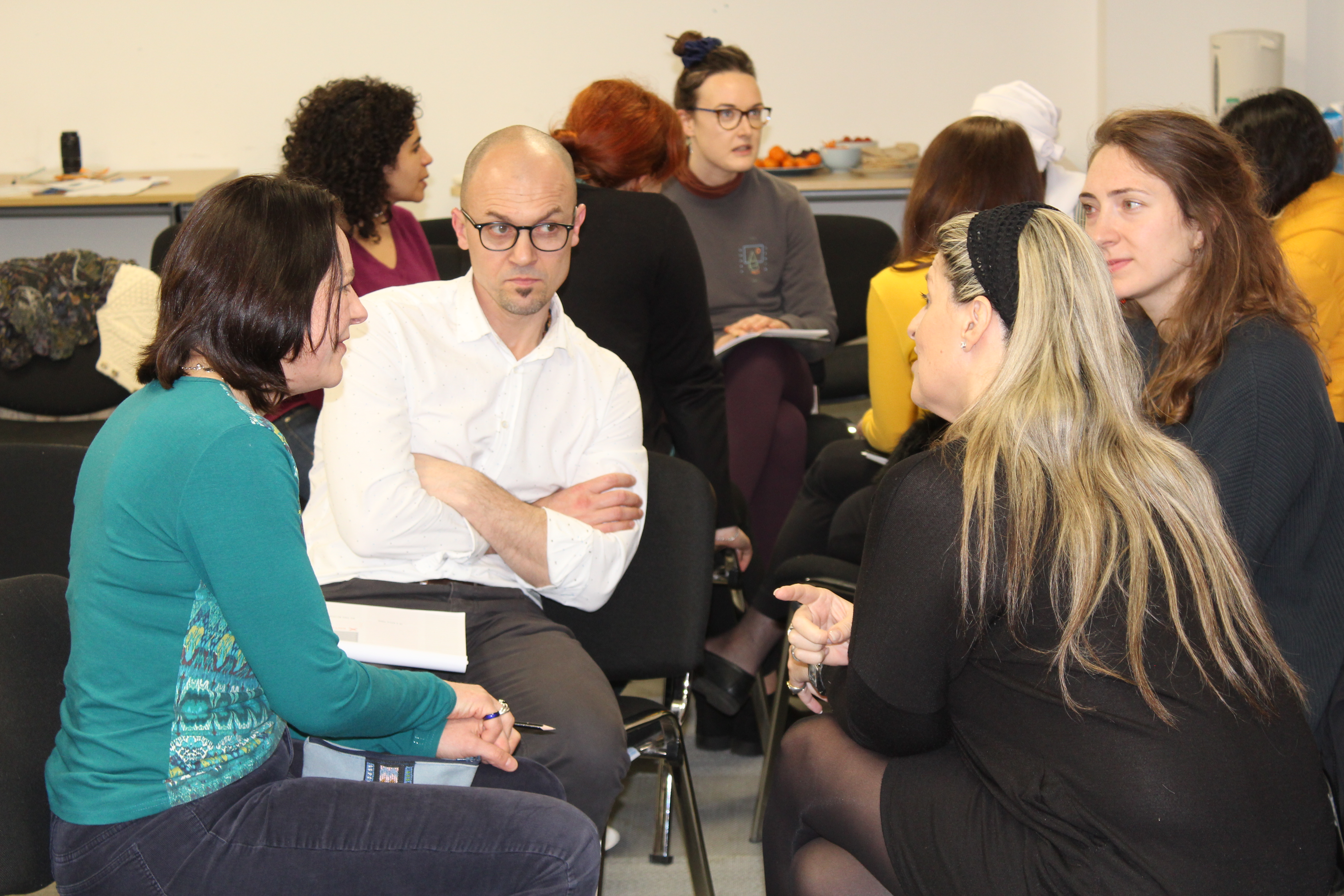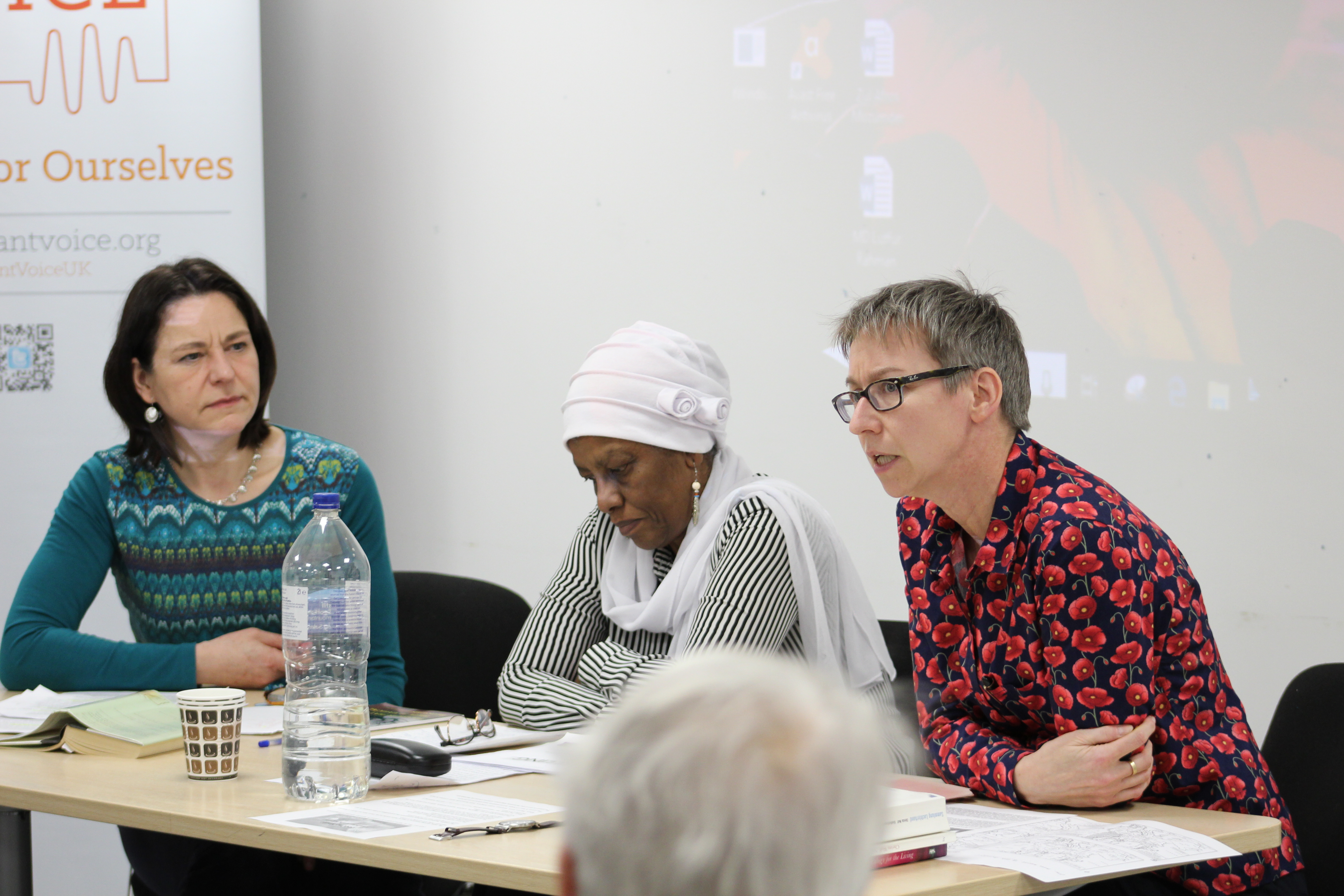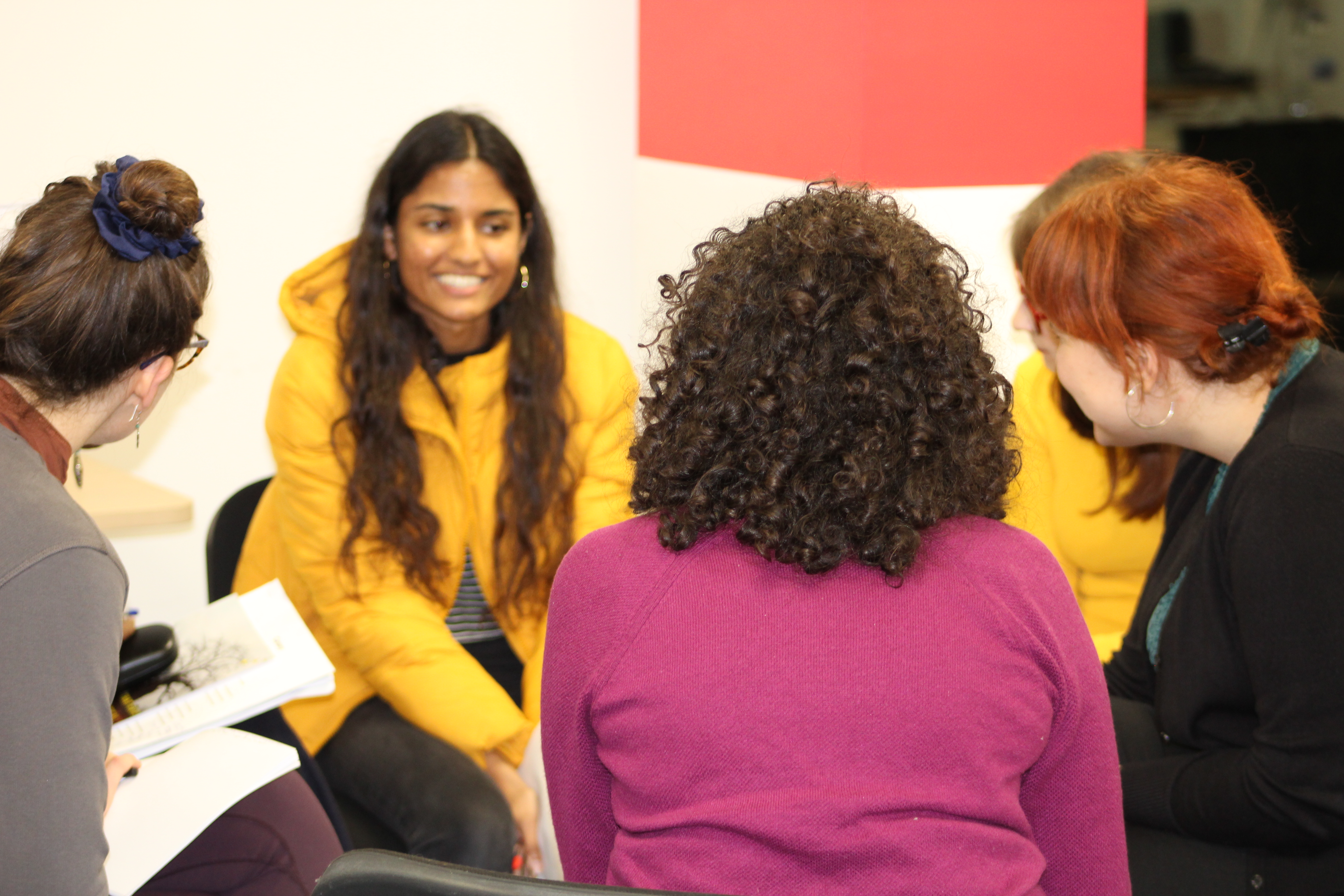'What language do you dream in?' A storytelling workshop
'What language do you dream in?' A storytelling workshop

How do I give voice to the women in my family who have experienced shifting borders? How can I tell that story in a place where it isn’t welcome? How can I tell a story of displacement when the audience has no idea of the historical facts? What is more important to a writer – experience or identity, culture or beliefs? What language do you dream in?
These were just some of the questions raised by the speakers who opened the migrant storytelling workshop at Migrant Voice on Wednesday 20 March. We co-hosted the event with Petra Rau, a senior lecturer at the University of East Anglia. Petra was one of the speakers, alongside translator Antonia Lloyd-Jones and writer and poet (and MV member) Amna Mahmoud.
From looking at how we can give voice to some of the millions of Germans who were forced to migrate at the end of the Second World War – and whose stories remain largely untold – and how to convey the sense of displacement experienced by Poles who have seen the borders of their country shift relentlessly, to exploring ways to universalise a story of a Sudanese woman’s suffering, each speaker addressed the theme of “storytelling beyond borders” in a different way.
But all were equally stimulating, as we found as participants broke into groups to work on their own stories.
They also found themselves inspired by pieces of visual art, poems and quotes by migrant artists adorning the walls of the room.
“What does “home” mean?” one group asked. “Are languages really strangers to each other?” asked another.
The discussions were open, honest and sometimes emotional as people recalled memories of home or gave voice to the challenges of being a migrant.
Several people presented their stories, reflections and poems to the whole group at the end of the workshop. The applause was warm, the responses curious, the further discussion engaging and empathetic.
Here are a few of the pieces created during the evening…
Home
“How can I
Overcome the need to
Mediate between and
Elevate above this diversity.”
...
“Every drop of blood
Every bit of genes
Every Challenge, Every Adventure, Every Voyage
Every Love Story, Every Birth, Every Death
Every Choice and Every Dream and Every Hope
From Each and Every One of
My Ancestors
Brought me Home, as a Citizen of the World…
…. As the Person
I AM Today!”
...
A poem of stories, inspired by Walter Benjamin
“Languages are not strangers to one another
But languages can make us strangers to ourselves
And what if I find my love here in a foreign country and one day I just won’t be able to convey a message straight away from my soul. I will miss some English words.
They are not strangers, but humans make them so… when they can’t find another solution to a problem
Why do we have more words to describe feelings of sadness in most languages than feelings of happiness?
They allow us to communicate across imagined boundaries and physical barriers we put up, and just as we all share a common ancestor, languages all share a common root.
We are six – sharing the same language.”
Collected and written by: Thea Gordon-Rawlings, Amna Mahmoud, Sonali, Joanna Matera, Polina Faraon, Hend Badawy
Languages spoken: Arabic, Russian, English, French, Creole, Polish, Ukrainian, Spanish
...
“Home was my grandmother’s apron in front of the wood-fired stove in the flour mill; home was digging up potatoes and collecting wood; home was the constant low rumbling of the flour mill; home was being crushed in my father’s arms; home was the sweets counter at the local bakery; but my home was not their home.”





